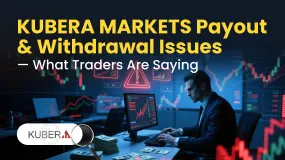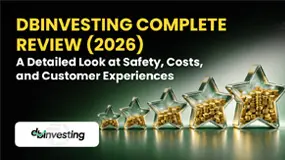Abstract:Webull teams up with Kalshi to integrate event contracts, offering new financial market tools. Learn how this impacts trading amid CFTC regulatory challenges.

Webull, a major digital brokerage platform, has announced a ground-breaking collaboration with Kalshi, a CFTC-regulated prediction market exchange, to incorporate event contracts into its offerings. This partnership is a crucial step toward introducing prediction markets to regular trading platforms, providing people with new methods to participate in financial markets.
The introduction of event contracts will take place in stages, beginning with a restricted range of cash-settled contracts linked to economic and political events. Webull intends to extend its capabilities in the future, giving consumers a wider choice of prediction-based trading possibilities. Webull becomes the second major brokerage, after FOREX.com, to work with Kalshi to integrate prediction markets onto its platform.
Regulatory Concerns and Industry Trends
The collaboration comes at a time when regulatory scrutiny in the United States has increased, notably in relation to sports-related event contracts. The Commodity Futures Trading Commission (CFTC) initiated an inquiry in early February to determine whether event contracts provided by platforms such as Crypto.com and Kalshi are in compliance with US derivatives rules. This investigation has already had an impact on other brokers, such as Robinhood, which stopped Super Bowl-related event contracts in response to a CFTC request.
Robinhood's decision to stop its Pro Football Championship market exemplifies the regulatory hurdles that prediction markets face. Despite these obstacles, Crypto.com has announced that it would continue to provide Super Bowl betting, indicating a split in how platforms are responding to regulatory demands.

How Prediction Markets Differ From Sports Betting
While sports-related event contracts are sometimes compared to regular sports betting, the two work on fundamentally distinct concepts. Traditional sportsbooks establish odds that favor the house, but prediction markets employ decentralized market knowledge. Participants work together to assess the probability of an event's outcome, resulting in a more transparent and market-driven approach.
Kalshi's Expansion and Legal Battle
Kalshi's growth into broker relationships gained traction right before the CFTC's investigation when the business signed an agreement with Robinhood. However, the regulatory situation is still unsettled. Kalshi has won a legal battle with the CFTC, allowing it to provide election-related event contracts to US consumers. Despite this, the CFTC's attorneys claimed that the judge supervising the case “erred” by neglecting crucial Commodity Exchange Act definitions.
To add to the complexity, the CFTC is mulling a new regulation that would prohibit regulated businesses from providing contracts related to political races. This prospective legislation is motivated by worries about election integrity, which presents another difficulty for Kalshi and its broker partners.
What This Means to Retail Investors
Webull's integration of Kalshi's event contracts offers a big potential for regular investors to vary their trading tactics. Users can speculate on the results of numerous events, such as economic indicators and political elections, in prediction markets, all within a controlled framework.
Webull and Kalshi want to provide instructional materials to help people explore this new asset class. This effort demonstrates their dedication to providing individual investors with cutting-edge tools and expertise.
Conclusion
Webull's relationship with Kalshi is a watershed point in the growth of prediction markets. While regulatory difficulties remain, the partnership emphasizes the rising need for alternative trading products. As the rollout continues, ordinary investors will get access to a new frontier in financial markets that combines regular trading with the dynamic realm of event-based speculation.
For the time being, the industry is intently monitoring how regulators and platforms negotiate this unknown region, determining the future of prediction markets in the United States and elsewhere.











